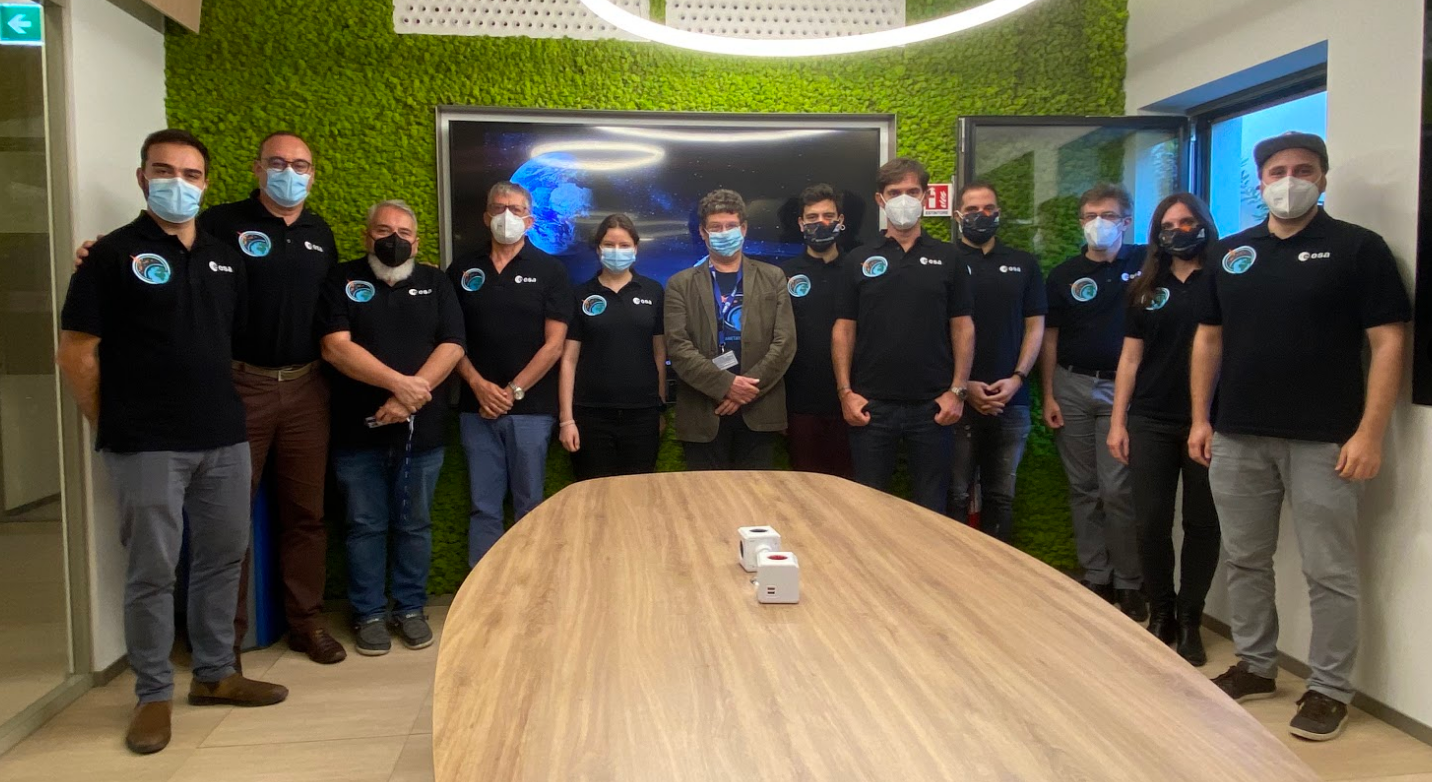Inauguration of the new NEOCC facilities
Inauguration of the new NEOCC facilities

operator neo
On 11 October 2021, the new offices of ESA’s NEO Coordination Centre (NEOCC) were inaugurated, in the presence of high-level authorities of ESA, the Italian Space Agency, and the Italian government. The Centre, firstly inaugurated in 2013, is now operating from a completely renovated building inside ESRIN, ESA’s Italian centre located in Frascati, near Rome.
The NEOCC will serve as the “nerve centre” of ESA’s Planetary Defence Office. The building will host the offices of the majority of the team members, working on the various pillars of the programme, including observations, orbit determination and impact monitoring.
The new building is an important addition to enhance the size, expertise and capabilities of the team, as they work together to provide their scientific and technical expertise to the topic of NEO monitoring and threat prevention.
The activities of the Centre cover a variety of topics essential to characterise the asteroidal impact threat: from the collection of new observations using many worldwide telescopic resources available to the Programme, to the use of these observations to refine our knowledge of the orbits of the most dangerous NEOs, and predicting possible future collisions with our planet.
The study of NEOs is a highly collaborative scientific field. The NEOCC therefore also serves as a repository for European data, knowledge and information, making it accessible to users in Europe and worldwide. At the same time, our scientists and researchers participate in worldwide collaborations on the topic, including international observing campaigns, and continuous comparisons of the impact monitoring results with NASA and their respective teams.
Recent events, such as the Chelyabinsk impact in 2013, and the multiple fireball events detected almost every night across Europe, demonstrate that asteroids are a continuous threat to our planet. ESA’s Planetary Defence Office, and its NEOCC team in Frascati, will continue to operate and grow to effectively provide Europe’s contribution to this important topic of global interest and relevance.
For more information, please check the ESA press release.

